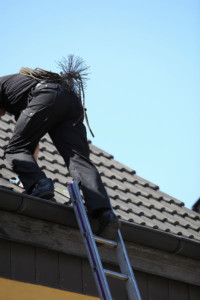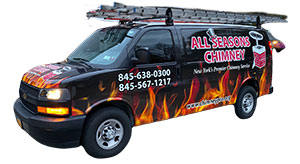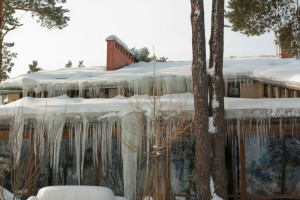 As we approach the end of the year, it is time to start thinking about the resolutions we want to make for the next year. All Seasons Chimney would like to suggest an important resolution: keeping up with the essential maintenance tasks of your chimney. While many feel they are saving money by ignoring chimney maintenance issues, neglecting your chimney can be even costlier than the expense of taking care of it. In order for your fireplace and chimney to work efficiently and safely, you must maintain this system. We would like to tell you the most important chimney maintenance tips you should follow during the next year.
As we approach the end of the year, it is time to start thinking about the resolutions we want to make for the next year. All Seasons Chimney would like to suggest an important resolution: keeping up with the essential maintenance tasks of your chimney. While many feel they are saving money by ignoring chimney maintenance issues, neglecting your chimney can be even costlier than the expense of taking care of it. In order for your fireplace and chimney to work efficiently and safely, you must maintain this system. We would like to tell you the most important chimney maintenance tips you should follow during the next year.
Schedule a chimney sweeping from All Seasons Chimney.
An annual professional chimney sweeping is recommended by many national fire safety organizations, including the Chimney Safety Institute of America (CSIA) to reduce the risk of chimney fires. When our CSIA-certified chimney sweeps do this job, we take great care to remove every bit of accumulated creosote from the walls of your chimney. A natural compound that forms during the combustion process of burning wood, creosote is highly flammable and can easily ignite a chimney fire if your chimney reaches a high enough internal temperature. We will scrub your chimney clean from creosote so that you will not have to worry about that dangerous fire hazard.
Have your chimney professionally inspected.
When All Seasons Chimney performs a chimney sweeping, we also will inspect your chimney for possible problems and for damage that needs to be repaired. Not only does a professional chimney inspection help your chimney work effectively, it can also save your life. We will look for flue blockages and cracks in your chimney liner to ensure you are not at risk for a carbon monoxide leak. When debris is blocking your flue, carbon monoxide can be forced back into your home. This toxic gas can also leak through cracks in your chimney liner. To avoid deadly carbon monoxide poisoning, you should have your chimney inspected annually.
Install smoke and carbon monoxide alarm detectors throughout your home.
Even after you have a professional chimney sweeping and inspection, you could still experience a chimney fire or a carbon monoxide leak. Accidents can happen, and you need to be prepared in the case of an emergency. Installing smoke and carbon monoxide alarms on each level of your home, in the same room as your fireplace, and outside every bedroom can save the lives of you and your family. You should also remember to check the batteries for these alarms when you change your clocks twice a year for Daylight Saving Time.
Make a resolution this coming new year to follow this chimney maintenance routine. Contact us at All Seasons Chimney for all of your chimney maintenance, repair, and installation needs.


